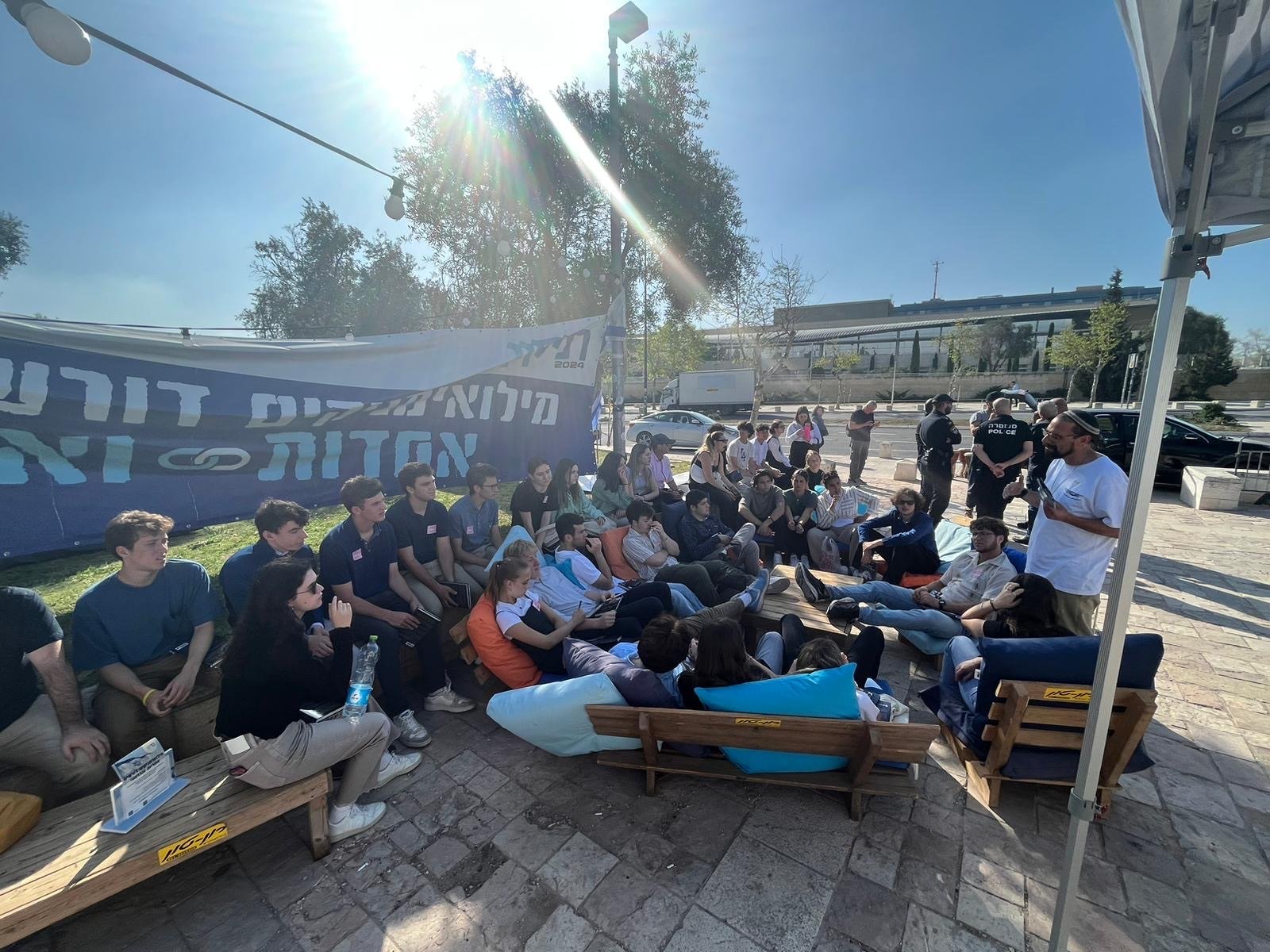
Experience: Study
Knowledge acquired through critical thinking is the surest path to mutual understanding and a humble wisdom.
All Kivunim students take the following courses which are a full academic year, totaling 30 credits:
Courses
-
We understand the Jewish experience in each land of the Jewish people’s Diaspora as one of integration, positive assimilation, and creative tension with the native culture. We want our students to appreciate the rich texture of life that has come from our dispersion. We have lived as Jews in over 50 countries of the world, in many places for over 1000 years and in some since the time of the First Temple. Our students not only read and hear lectures about their travels, they develop a cultural awareness and literacy only dreamed about in most college humanities courses.
The academic program has required readings, fascinating lectures (courses are taught by top university professors from both Israeli and international campuses, including those we bring to Jerusalem just for Kivunim), projects, and papers - but it is brought to life when we travel. Additionally, each unit begins in the Israel Museum, where every Kivunim student receives a year-long membership for entry to encourage their use of the Museum as the major cultural resource that it is.
-
Our interdisciplinary Middle East Studies course that explores three interconnected and impactful elements in the creation of both contemporary Israel and Palestinian nationalism. (1) The emergence of a "new" Middle East out of a complicated and contested geographic space; (2) the many interpretations of Zionism and their evolutions into the practical reality of Statehood; and (3) the challenges brought about by Jewish sovereignty.
The course will explore these issues by uncovering and carefully examining often untold episodes from the "back of the history shelf." We present and explore this unique material with the goal of examining these stories within a larger historical context offering a deeper and often more comprehensive understanding of the land, people and ideas that make up the Middle East, a region that has been shaped and reconfigured many times over the millennia.
-
Our language program enables all students to advance their knowledge of Hebrew and begin their study of Arabic, with many alumni continuing their Arabic studies when they return to college. Some ask "why teach Arabic to Jewish students?" We answer: Israel lives in a neighborhood of Arabic language and culture. Those looking to a more peaceful future must be able to understand and speak to their neighbors. As simple and profound as that!
-
Taught by our Artist-in-Residence, world renowned Tobi Kahn, this course uses the medium of photography to teach our students how to use sight to "learn" and not just to see. We visit artists in their studios, study the great photographers to understand more of their perspective and insight and examine settings for clues to composition, structure, and expression in the photograph itself.
-
In addition to the formal academic program, there are supplemental sessions in music, dance, cuisine, literature and film related to both Israel and the countries of our travels. One night each week is devoted to other study opportunities - for example: some study Talmud, others Basic Judaism, some with Kivunim staff and others at other Jerusalem Institutions. The Kivunim environment is constantly alive with new ideas and discoveries.
Most critical to the Kivunim year is the integration of our field experience in 4 international trips with the classroom experience in Jerusalem. Our program provides an intellectual upward spiral where things learned in October re-emerge in January and March in totally different contexts thereby allowing “big ideas” to be nurtured and expand. Our students meet some of the most distinguished thinkers, writers, artists, musicians, political & religious leaders and more in Israel and the countries we visit.
Students are introduced to the world of Arab-Jewish co-existence both through their study of the Arabic language and Islamic religion and culture and through numerous experiences within the Arab sector of Israel throughout the year. They develop and deepen their understanding of Jews and Judaism within the context of Jewish historical experience. Living in Israel for the year demands a deep and profound encounter with contemporary Israeli society.
Our integrated approach builds a sophisticated sense of common humanity manifest in rich cultural awareness of self and other and an enhanced compassion for and understanding of the diverse and expansive world in which we live.
College Credits
Kivunim students receive a full year of college credit transferrable to and accepted by most colleges and universities across North America. Kivunim’s Academic Program consists of five courses that support the basic goals and objectives of our extensive travel schedule. Formal academic credits are provided by Hebrew College of Newton, Massachusetts, which is accredited by the New England Commission of Higher Education.
Kivunim requires students to take five full-year courses: Civilization and Society - Homelands in Exile; Land, People, Ideas: The Challenges of the Middle East; Arabic Language and Culture; Hebrew Language and Culture, along with Visual Learning, the Art of Seeing.* Hebrew College provides academic supervision, reviewing and approving all of Kivunim’s course descriptions, curricula, reading lists, tests and faculty qualifications.
Upon the successful completion of Kivunim course(s), Hebrew College issues official transcripts indicating the academic credit equivalent (totaling a maximum of 30 credits) earned by each student. Our students have transferred these credits to a wide variety of North American schools, e.g., University of Michigan, Emory University, University of Maryland, Washington University in St. Louis, University of Illinois, SUNY Binghamton, Colby College, Ithaca College, Columbia University, University of California at Berkeley, McGill University, etc. The official Hebrew College transcript requires payment of an additional fee of $1,650.*
*This fee is subject to change each year by a minimal amount at the discretion of Hebrew College.

